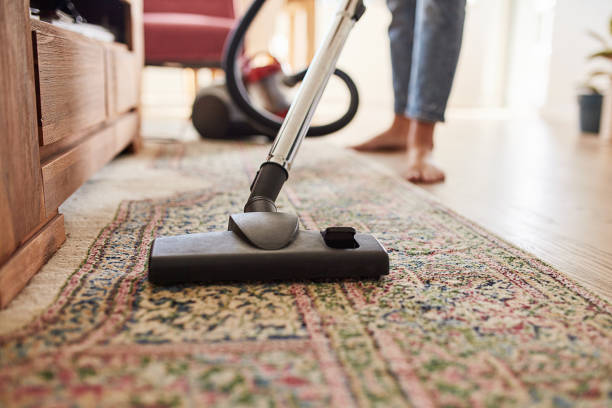
A clutter-free bedroom reduces stress and improves sleep quality. Remove unused items and store essentials neatly. Keep surfaces like dressers and nightstands clean to avoid visual distractions and mental unrest.
Make a habit of organizing your wardrobe weekly. Keep clothes folded or hung to avoid piles on chairs or floors. This small effort makes your room feel more peaceful and welcoming.
Limit decor items to just a few calming pieces. Too many visual elements create chaos. Choose soft lighting and soothing wall art to set the tone for relaxation and uninterrupted rest.
Your bed should be the center of attention. Keep it neat with fresh bedding. Clean sheets and a fluffed pillow can improve comfort, contributing to deeper, uninterrupted sleep every night.
Dust particles can trigger allergies and disturb sleep. Dust all surfaces including headboards, lamps, shelves, and window sills at least once a week using a microfiber cloth.
Vacuum the carpet thoroughly to remove trapped allergens. Pay attention to under the bed and corners where dust collects. If you have pets, vacuum twice a week to prevent dander buildup.
Consider using an air purifier to maintain air quality. Cleaner air means fewer disruptions at night. Good airflow and less dust contribute to a healthier and more restful sleeping environment.
Don’t forget to wash curtains monthly and clean window tracks. These hidden spots gather dirt fast. Clean surroundings reduce respiratory issues and support a calm, sleep-friendly atmosphere.
Changing your sheets regularly is key to better sleep hygiene. Aim to wash them weekly in hot water. This removes sweat, skin cells, and dust mites that can disturb sleep.
Mattress hygiene also matters. Vacuum your mattress monthly and rotate it every three months. This maintains its shape and keeps it free of allergens and odors that affect your rest.
Pillows should be fluffed daily and washed every few months. Replace them annually for best neck support. Clean pillows enhance comfort and help your body fully relax at night.
While relaxing, many people explore travel plans and may rent a car service for a weekend getaway. A clean, welcoming bedroom offers similar peace, helping your mind and body recharge.
Set the mood for rest by managing lighting. Use blackout curtains to block outside light. Consider warm-toned, dimmable lamps to wind down as bedtime approaches.
Add soothing scents like lavender with essential oil diffusers. This aroma promotes relaxation and has been shown to improve sleep quality. Just a few drops go a long way.
Limit electronic devices in the bedroom. Blue light affects melatonin production. Charge phones outside or place them in night mode to avoid stimulation close to bedtime.
Finally, keep a window slightly open for fresh air if possible. Natural airflow reduces stuffiness and promotes better breathing. All these steps support a deeply restful sleep experience.
At least once a week. Dusting, vacuuming, and changing sheets help create a restful sleep environment.
Yes, they improve air quality, reduce allergens, and support breathing—essential for uninterrupted sleep.
Make the bed each morning, do light tidying before bed, and avoid eating or working in the bedroom.
Lavender is most effective. It promotes calm and has proven sleep-enhancing properties.
Yes, a clutter-free space reduces anxiety and allows your brain to wind down more easily before sleeping.